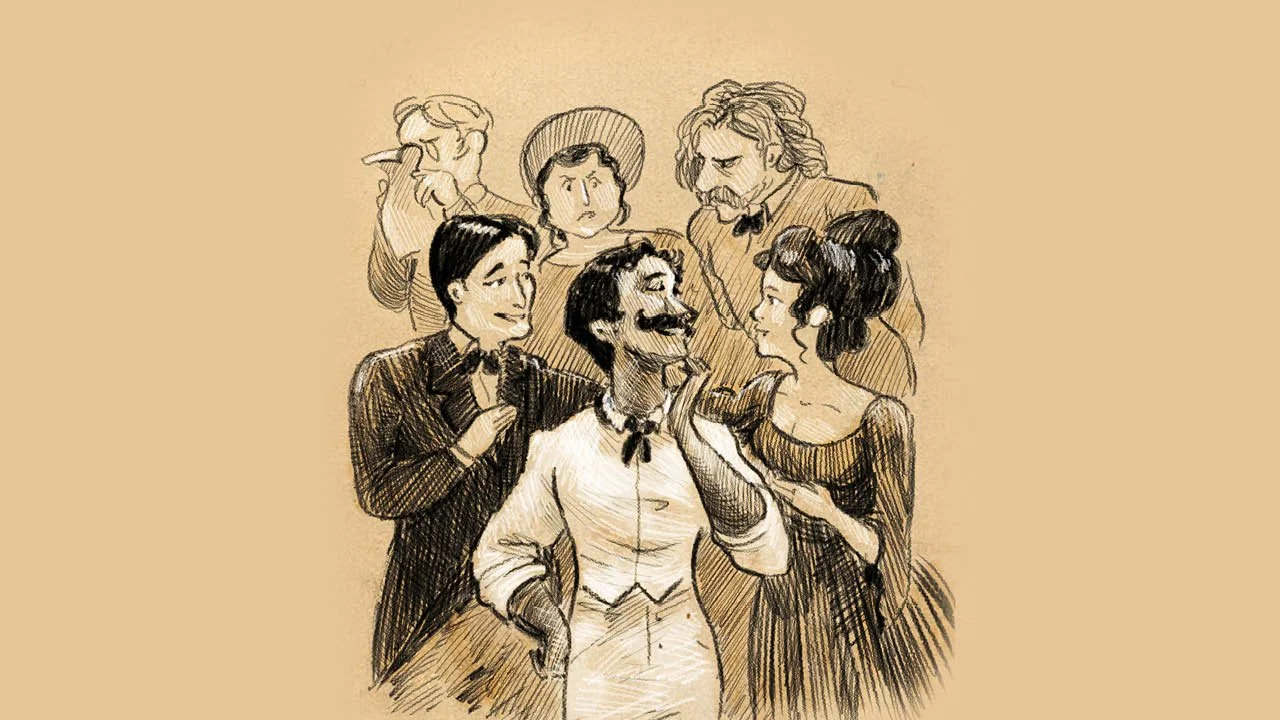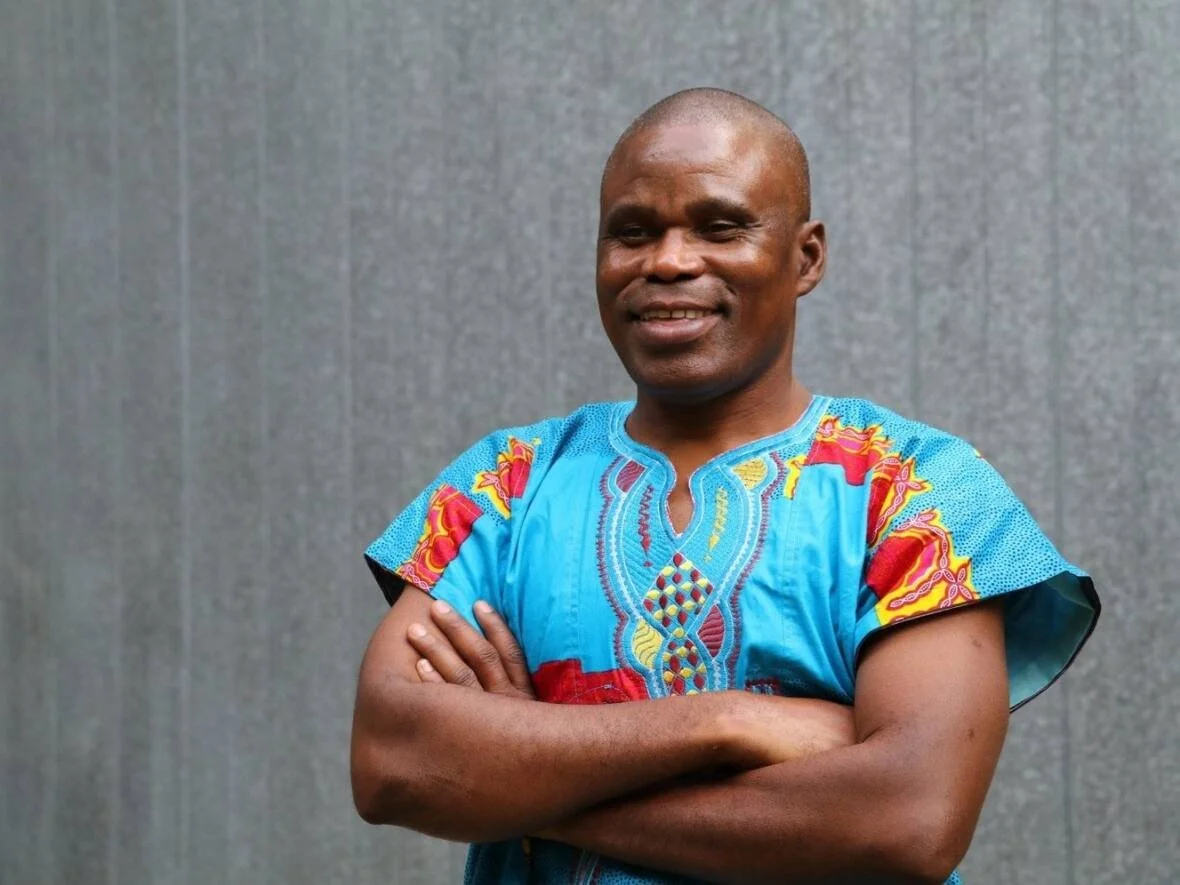The Weather Station’s Tamara Lindeman sings through the darkness
Coming to Vancouver for the Chan Centre EXP series, the Juno-nominated artist finds things to celebrate amid so much societal nihilism
The Weather Station. Photo by Daniel Dorsa
The Chan Centre for the Performing Arts presents The Weather Station with the UBC Contemporary Players on January 21 at 7:30 pm at the Chan Shun Concert Hall as part of the Chan Centre EXP series, a co-presentation with UBC Centre for Climate Justice
CLOUDY WITH A chance of catastrophe was the forecast when Tamara Lindeman sat down to begin writing the songs that would become the Weather Station’s next two LPs: Ignorance and How Is It That I Should Look at the Stars. The year was 2018: a shameless grifter was two years into his disastrous presidency; his mini-me clone Doug Ford had just been elected premier of Ontario, where Lindeman lives; and an ominous air of malaise hung over public life.
Oh, and the climate numbers were just getting worse and worse: more extinctions, more freak weather events, and more tidings of gloom. An auspicious time for protest singers, perhaps, but not necessarily for Lindeman, whose work is marked by sharply etched observations but not so much by sloganeering or explicit outrage.
Nonetheless, she channelled her concerns into a commercial breakthrough (the Juno-nominated Ignorance) and a wonderfully intimate personal inventory (How Is It That I Should Look at the Stars). Although mining entirely different sonic landscapes—the first is a buoyant rock record, the latter a drum-free exercise in piano-based chamber folk—both captured the spirit of the times in a poetic, accessible, and even somewhat prescient way.
“It’s really interesting,” Lindeman muses in a telephone interview from her Toronto home in advance of The Weather Station’s Vancouver performance as part of Chan Centre EXP. “We recorded Ignorance in 2019 and then How Is It That I Should Look at the Stars in March 2020, right before the pandemic. Literally right before: we walked into the studio, and when we walked out three days later it was like the world had changed. So it’s very much pre-pandemic, but I think that’s part of the funny, witchy magic of those records.
“I see it as just like all of this darkness was sort of hovering,” Lindeman continues. “What I was picking up was primarily this energy of not wanting to see, not wanting to be aware, and wanting to hide from reality. That pre-pandemic era was also the Trump era, where there really was a lot of know-nothing thinking, not just happening but being actively perpetrated. There was a lot of grifting and lying and hiding that I think shows up on those records—the darkness of a lack of communication and a lack of ability to talk. And I think the pandemic really exposed a lot of that. People who maybe weren’t picking up on this energy had to, because there was nothing else to do.
“Maybe that’s why the songs feel so prescient,” she says. “I’m not sure, but that’s my theory.”
Of course tapping into the zeitgeist is one thing; articulating shared feelings in a relatable way is another. While Lindeman is often compared to the great song-writing diarists of the 1960s and ’70s, she cites Rebecca Solnit as a more recent inspiration, noting the American essayist and activist’s ability to see clearly through the darkness while still celebrating beauty and encouraging hope. This method might be articulated most fully on Ignorance’s “Tried to Tell You”, in which Lindeman describes the necessity of “standing behind the fragile idea that anything matters”.
Otherwise, why bother to make art?
“I think that is my perspective,” the songwriter concurs. “The perspective from which I write, or decide to write, is the fragile idea that anything matters. I think in order to believe that something is important enough to put into a song, you know, you have to make that decision—and I guess what I was responding to, and what I continue to respond to, is just that I think our world and our society are very strange. We seem to be prioritizing just the strangest things, really, and we don’t seem to know how to prioritize the things that actually matter to us. I guess I feel a lot of nihilism from this society, in a strange way.”
How do you prevent that nihilism—especially in its climate grief–induced form—from taking over?
“Well, it’s difficult!” Lindeman says. “Yeah, it’s hard. It’s a very deep wound that I think we don’t acknowledge, and don’t know how to acknowledge. And those people who feel it, I think they’re burdened. A lot of the world is trying not to see this, and that’s understandable. I have a lot of empathy for that. But it is hard. Something I find difficult for me, personally, is that when you’re making art, or making anything, you’re sort of presuming something about the future. ‘I’m making this record which I hope will be timeless, and I hope will be heard in the future.’ But then the climate feelings show up and you sort of question what sort of society will exist 30 years from now, and whether the thing you’re doing will have any meaning.
“It’s like ‘Is this culture going to continue? What is going to happen? What is going to change?’” she adds with a rueful laugh. “These are all questions that one grapples with—or that some of us do. And then I think other sections of the culture refuse to think of those things—understandably, because it’s difficult.”
Lindeman is currently “learning to write songs again”, a task made more daunting by the success of Ignorance and How Is It That I Should Look at the Stars and the endless string of concerts and broadcasts that followed. “I’ve been experiencing that thing where you make something that touches a nerve and achieves all of this recognition unexpectedly,” she admits. “You don’t want to repeat yourself, but you can’t help but repeat yourself because that’s still who you are. And also you feel all these new expectations showing up in your mind. I’m definitely in that stage, but that’s okay.”
For now, she says she’s encouraged by community, by friendship, and by the constant solace of birds and water. And by music, too, as we’ll hear when The Weather Station plays the Chan Centre for the Performing Arts as part of the Chan Centre EXP series. For one set, she’ll revisit familiar terrain in a trio format, accompanied by bassist Ben Whiteley and local drummer Dan Gaucher. After that, in an initiative spearheaded by the Chan, she’ll be joined by 10 musicians from the UBC Contemporary Players in new arrangements of her songs from composers Darren Fung and Mark Marinic.
No chance of repetition there, but as Lindeman readily adds, “there’s a lot to celebrate and enjoy”.













